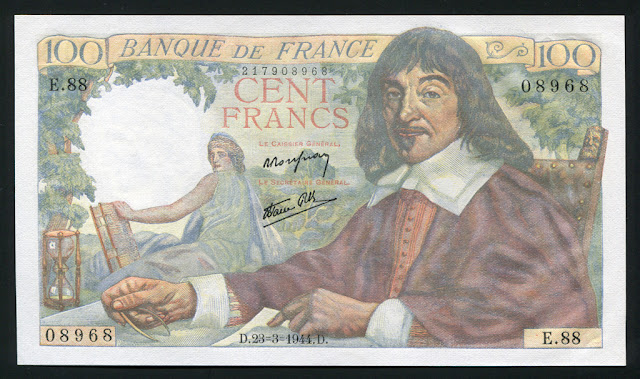Descartes

Portrait of Rene Descartes on mid-20th-century French banknote.
Descartes was the turning point into what we now call Modern Philosophy -- and also into the Enlightenment. He promoted a methodology built around the idea that you could understand things so clearly that there would be no room for second thoughts, and that when you did, you couldn't be wrong. He made the apparently incredible idea that what you understand best is your own mind into a claim that centuries of philosophers found simply obvious. He staked out claims for intellectual autonomy by appealing to ecclesiastical authorities. The inventor of Cartesian coordinates, he advanced a new mechanistic physics, built around the principle of conservation of volume. Maybe they've become more sophisticated in the meantime, but our own methodologies are recognizably descended from the Cartesian Turn. Over the past four centuries, philosophers have produced one after another refutation of his views, but we will examine his positions, along with some of their more developed descendants, from a different perspective, one guided by the following question: What would the world have to be like for the methods Descartes advanced to actually work?
PHIL 3013-004/5193-001/6193-002
Fall 2023
Time: MWF 10:45-11:35